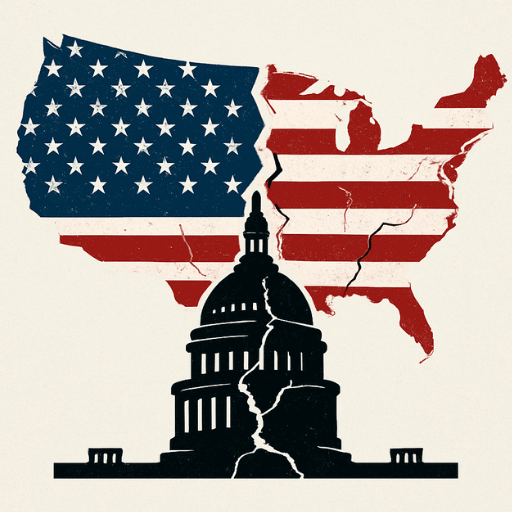You Don’t Get to Pick and Choose When the Constitution Matters
If you’re okay with ignoring the law when it helps you, you’re not defending democracy—you’re dismantling it.
Introduction: A Thought Experiment That Shouldn’t Be Hypothetical
Imagine a progressive president, frustrated by rising gun violence, declares a national emergency and issues an executive order to ban and confiscate AR-15s. The courts intervene, citing the Second Amendment. But instead of complying, that president shrugs, dismisses the judiciary as “activists,” and directs federal agents to carry on anyway.
How would that sit with you?
Would you still cheer if it wasn’t your side writing the orders?
Because that’s not just a “what if.” That’s the exact precedent being cheered on right now by millions who call themselves defenders of liberty—so long as the liberty in question is their own.
Rule of Law Isn’t a Partisan Tool
The rule of law isn’t a political football. It’s the one thing standing between order and chaos, between democracy and autocracy.
And it only works if it’s applied consistently—not conveniently.
If a federal court blocks an executive order, it’s not optional. It’s not “just an opinion.” It’s the law. And when that law is ignored—whether by a Republican president or a Democrat—it sends a signal that the legal system is just another battlefield, not a safeguard.
This isn’t theory. It plays out in business too.
Markets depend on clear, consistent rules. Contracts are only meaningful when courts can enforce them. A company that follows EPA guidelines shouldn’t be undercut by one that ignores them because it’s politically connected. A startup shouldn’t have to guess which executive order to obey because a president decided to bypass the courts.
If legal decisions can be overruled by a press conference, we’re not running a country—we’re running a casino.
What Happens When the Rules Break Down
When elected leaders start ignoring court rulings, they’re not just undermining justice—they’re destabilizing everything from the top down.
It’s not just politics. It hits the real world.
Businesses can’t plan long-term when regulations are enforced or ignored at the whims of whoever’s in power.
Investors pull out of unstable legal environments—not just abroad, but right here at home.
Small towns lose confidence in government when courts say one thing, but sheriffs and governors do another.
In states where public health laws, election rules, or tax structures shift based on partisanship—not the law—businesses suffer, communities splinter, and trust evaporates.
The rule of law isn’t a nice idea. It’s the infrastructure of society. And when you rip it up to win today, don’t act surprised when there’s nothing left to protect you tomorrow.
Consistency Is the Real Test of Principle
It’s not hard to support the Constitution when it backs your beliefs. The real test is whether you still stand by it when it doesn’t.
We’ve seen that test fail again and again:
- State officials enforcing court-blocked laws because they “don’t agree” with the ruling.
- Local sheriffs refusing to comply with public health orders.
- Governors issuing contradictory or flatly illegal mandates to score political points.
That’s not constitutional fidelity. That’s selective anarchy.
If we only obey the law when it’s convenient, we’re not a nation of laws—we’re a nation of loopholes.
Consistency isn’t weakness. It’s strength.
And the more we allow leaders at any level to abandon it, the faster our democracy unravels—piece by piece, precedent by precedent.
If You Cheer Now, Don’t Cry Later
If you’re celebrating today because your side ignored the law and got away with it, don’t complain tomorrow when someone else does the same—against you.
If you applauded defiance of the courts in the name of immigration crackdowns, don’t scream “tyranny” when another president uses the same defiance to seize guns, control speech, or rewrite civil rights protections.
You are setting the precedent.
You are telling future leaders that the Constitution is optional if the crowd is loud enough.
And when the tide turns—and it always does—your applause won’t protect you.
Call to Action: The Constitution Can’t Defend Itself
The Constitution only works when we defend it—especially when it challenges us. That means speaking up now, before the precedent becomes permanent.
Contact your representatives. Tell them: ignoring the courts is a red line, not a political strategy.
Call your governor. Remind them that states aren’t kingdoms, and judges aren’t optional.
Talk to your neighbors. Because this erosion happens when people stop paying attention—or start pretending it’s fine because “their team” is winning.
The Constitution doesn’t bend to partisanship. And it doesn’t forgive those who abandon it out of convenience.
If we want to keep it, we have to stand for it—every time.






